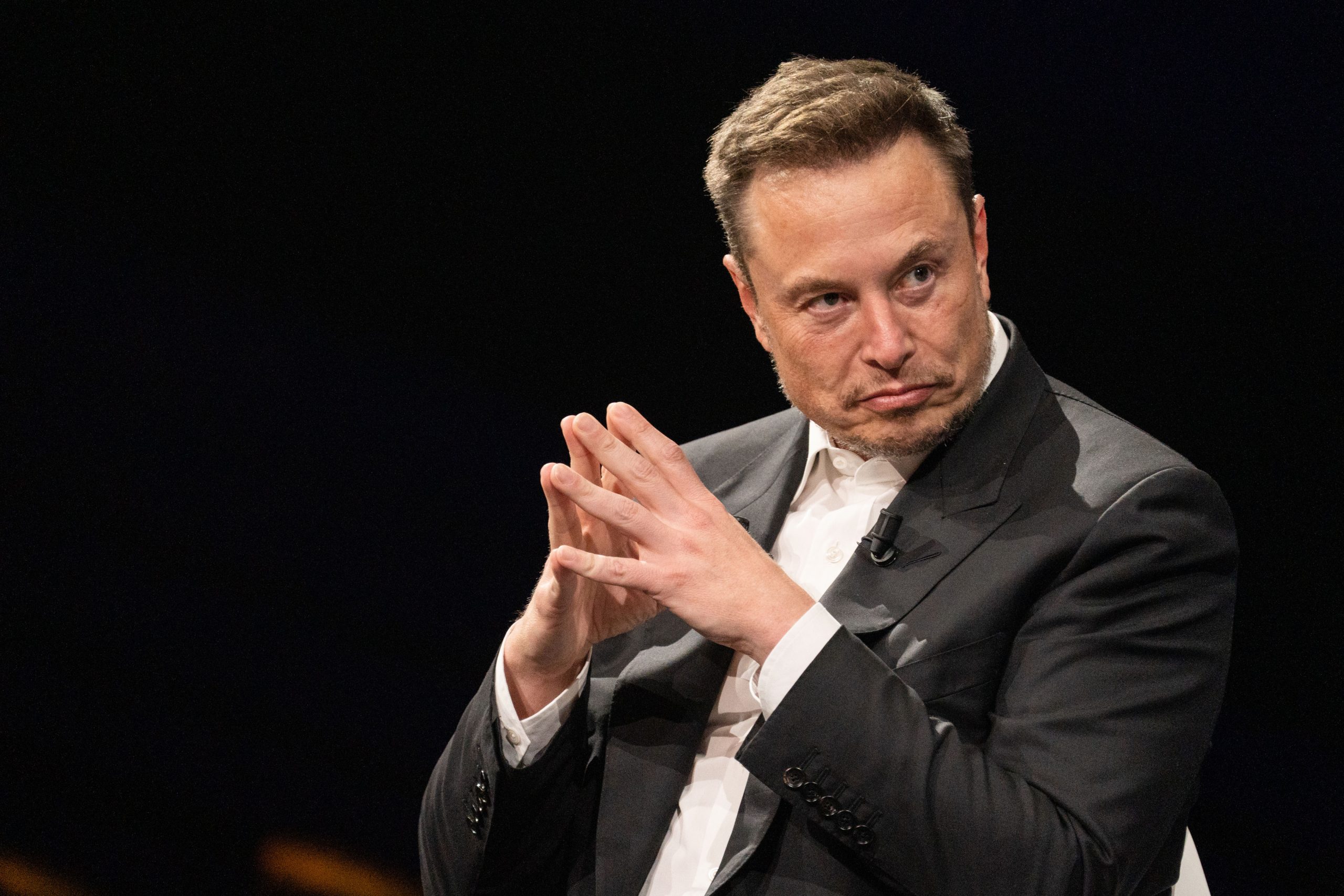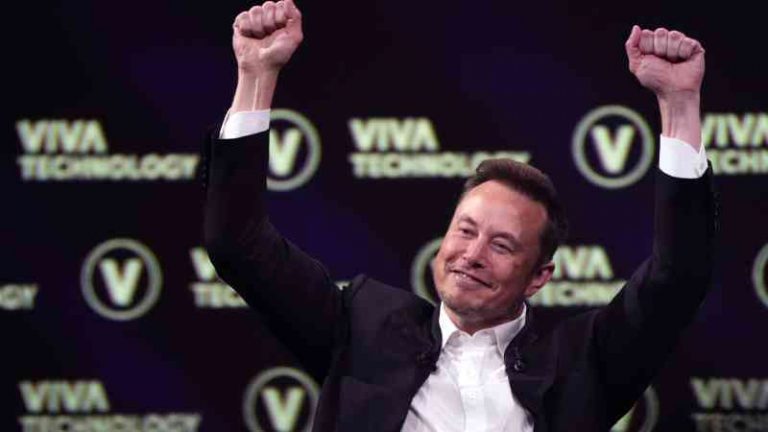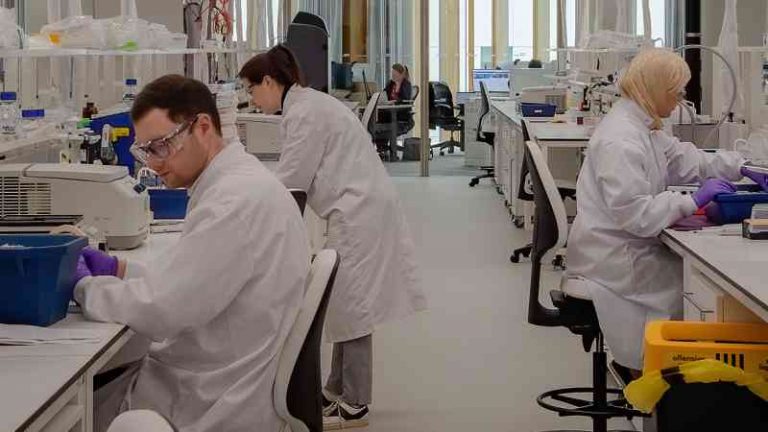Medicine is working for Emma Walmsley
Sometimes the drugs do work. Rewind to June 2021 and Dame Emma Walmsley looked in need of a bucketful. Critics were lining up to trash the four-year record of the GSK boss, in charge since April 2017. Her looming demerger of the consumer health wing, now known as Haleon, had cranked up the heat. And along had come the Elliott hedge fund to build some sort of stake and demand she reapply for her job. How, it asked, could a non-scientist, with a share price down 15 per cent on her watch, run a pure-play pharma group?
Walmsley came out fighting, declaring herself a “change agent” and “business leader”. Forget her lack of scientific training. She’d spent “the last four years leading a transformational programme of change precisely to address some perennial underperformance”, including ramping up R&D spend “by 30 per cent”.
Contrary to impressions, GSK was, she said, on the cusp of a “step-change in growth”. And, giving herself nowhere to hide, she set out punchy targets: compound annual growth from 2021 to 2026 of at least 5 per cent in sales and 10 per cent in adjusted operating profits — all en route to £33 billion sales by 2031.

Her boldness could have easily backfired. And, yes, there is a caveat: GSK shares, up 2 per cent to £15.68 on the full-year results, still lag the £16.76 where she came in. But, on the ground, as the latest figures show, Walmsley is delivering.
Strip out the impact of Covid drugs and sales rose 14 per cent last year to £30.3 billion. At constant currencies, adjusted operating profits were up 12 per cent to £8.8 billion. To boot, she’s raised her targets. Now she’s shooting for more than 7 per cent annual sales growth and 11 per cent in profits out to 2026, while predicting that sales will top £38 billion by 2031. That’s even allowing for Dolutegravir, GSK’s market-leading HIV treatment, coming off-patent in 2028.
Why the extra confidence? First, from delivering ten straight quarters of growth. Second, thanks to a drug that demonstrates her “step-change” thesis. Back in 2021, Walmsley said she had 11 future blockbusters in development. One of them was Arexvy: a new jab for respiratory syncytial virus infection, a condition affecting tens of millions worldwide. Less than six months in existence, it’s delivered £1.24 billion of sales, taking two thirds of a new market, against a rival product from Pfizer.
Now, when Walmsley says GSK is “planning for at least 12 major launches from 2025”, each capable of £2 billion in peak sales, the market’s less likely to write it off as wishful thinking. Even Citi analyst Andrew Baum, a long-term GSK sceptic, has spotted grounds “to support a more positive thesis”.
So how come the shares have gone nowhere? Answer: US lawsuits over GSK’s historic heartburn drug Zantac. Shore Capital analyst Sean Conroy reckons that, in “a worst-case” scenario, “up to $30 billion for litigation is being reflected in the share price” — or a sum equating to 35 per cent of GSK’s £65 billion market value. But all this may soon prove overdone. A Delaware judge is due to rule this quarter whether GSK even has a case to answer over four fifths of claims. Could that be the moment Walmsley also delivers a step-change for the shares?
Tesla headache
Talking of Delaware judges, what about this one: Kathaleen McCormick, the beak who’s just nixed a £56 billion payday for Tesla’s Elon Musk?
She thinks it an “unfathomable sum”, even for a “paradigmatic ‘superstar CEO’ ” keen to use the loot to fund interplanetary travel. And, of course, she has a point. No one needs that sort of lucre, not least a bloke with a $210billion fortune. McCormick may be right, too, that Musk “enjoyed thick ties with the directors” setting his pay.
Yet a majority of Tesla investors approved 2018’s options package, figuring that Musk would probably be worth the money if he took the electric carmaker’s market value from $59 billion to $650 billion.In fact, he got it revved up beyond $1 trillion, at least for a bit before the shares came racing down again as Musk went around blowing $44 billion on Twitter/X, getting into rows over antisemitic tweets, telling advertisers to “go f*** yourself” and being accused of a penchant for ketamine. Yet even now Tesla has a market cap of $600 billion.

So what right has a judge to take his share award away, just because one shareholder, the former thrash metal drummer Richard Tornetta, didn’t like it? It does create a bit of a slippery slope.
Not only that: it gives the Tesla board an even bigger headache. Musk is already agitating for a 25 per cent voting stake, with the threat that unless he gets one, he’ll develop the AI gizmos on which Tesla’s value is based elsewhere. But if Musk can’t have his options, that’s an 8 per cent stake in Tesla gone, reducing his holding to 13 per cent. Does the board have a plan to make up the difference that won’t also get kiboshed by a Delaware court?
Musk is now polling his fan club on X over relocating the Tesla soap opera to Texas or Nevada. How long before he suggests Mars?
Nuclear non-event
So much for Rishi Sunak’s “nuclear roadmap”, calling for 24 gigawatts by 2050, or seven more Hinkley Point Cs. The French government is now demanding loan guarantees from the Brits before the state-backed EDF even finishes that £46 billion éléphant blanc.
Having let costs rip, the French also know it’s in their interests to string along the PM until the election in the hope of cutting a fresh financing deal with a Starmer government. So, one question: if Hinkley’s not sorted, how exactly can Sunak take his promised final investment decision on Sizewell C, the lookalike nuke also being built by EDF?






